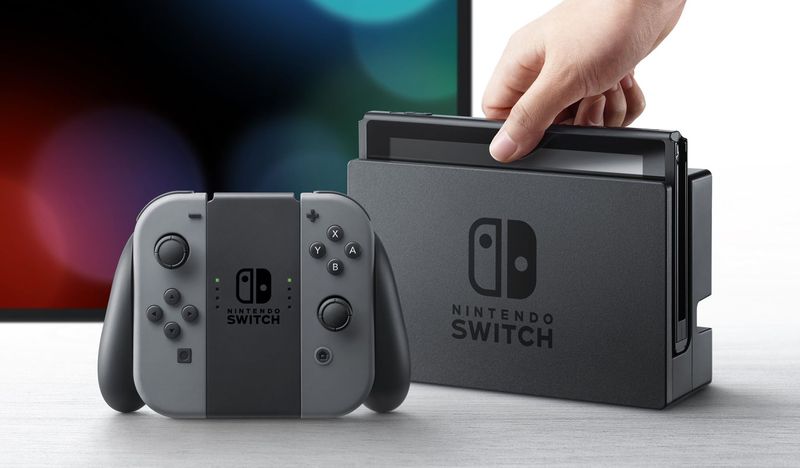For the past few years, handheld gaming has been an ailing beast; in fact, with Sony’s Playstation (PS) Vita likely to be axed for good and sales of the Nintendo 3DS trending as declining overall, it wouldn’t be unreasonable to think that the plug has finally been pulled on a niche of gaming that began with the Milton Bradley Microvision in 1979 and came to be typified by the Nintendo Game Boy (1989) and the battery-eating Sega Game Gear (1991) – which didn’t have enough power to run a single level of Judge Dredd without a mains adapter. Of course, there have always been alternatives, like with today’s nowe kasyna bez depozytu.
Significantly though, many of the claims of handheld gaming’s demise – like CNET’s from two years ago – came before two significant, related events: the appearance of the Nintendo Switch and the launch of Pokémon X and Y for the 3DS. Since then, sales of the Nintendo 3DS have actually climbed from 6.8m to 7.3m. It’s a comforting result for a console that has fallen a long way from the lofty branch of nearly 14m sales in 2013.
However, it’s likely to be a temporary reprieve, with the Switch serving as something of a terminus in the development of handheld consoles. Put another way, in melding handheld play with more conventional living room experiences, the Switch has bred the concept of the portable console out of existence. It’s hard to ignore the fact that the PS Vita (2011) and the NVIDIA Shield (2013) were the only other true mass market non-Nintendo handhelds released this decade.
Cornering the Market
There’s obviously competition for the handheld crown from mobile phones, as modern devices are significantly more powerful than the 3DS and PS Vita (ARM, a designer of microprocessors has tipped 2017 as the year mobile hardware will overtake the original Sony PlayStation 4, horsepower-wise) and can be much more versatile than Nintendo’s best, with enough productivity apps and flashlights for everybody on Earth to each have one.
Mobiles have also provided a platform for new entertainment niches to take off, including streaming TV, virtual reality (VR), and online casino or iGaming, an industry that bases much of its offering around the smartphone and tablet environments. The ability to play casino games wherever you are is arguably the most important feature a casino can offer to its players, even more than VR support or the latest slot machines.
Online casino brands are now so numerous that casino comparison sites exist to help players sort through them. It can make the difference between a £100 bonus for new players and a £1,200 one, so their popularity among blackjack and roulette players speaks for itself. There are also hundreds of “cashback” bonuses, a perk that returns a percentage of chips wagered on bets, and loyalty schemes (including perks such as pizza delivery) to choose from.
It’s worth noting that mobiles and handhelds like the 3DS have different audiences, the former being almost everybody – the “casual” demographic – and the latter consisting of dedicated gamers. Gaming is an incidental benefit of owning an iPhone, but there are few other reasons to buy a PS Vita other than to play Uncharted on the train. With that in mind, it’s perhaps not a good idea to cite mobile phones as the headsman behind the slow death of the dedicated gaming handheld.
Platform Exclusivity
Given the recent surge in 3DS sales after the launch of Pokémon X, it’s debatable whether the popularity of handheld gaming is endemic to their portability or the love of particular franchises; how many people bought the original PSP, a device that shifted more than 63m units to the 15m of its successor, the Vita, just for Final Fantasy Tactics and Crisis Core? Are we in love with the 3DS or just with Pokémon?
Much of the blame for the demise of the handheld lies with the developers themselves; Sony president Shuhei Yoshida admitted way back in 2012 that third-party support for the Vita was an expectation that never materialized – the same poison that killed the Nintendo Wii U off. Similarly, Nintendo has diversified its handheld offering so much that it stopped making sense a while ago.
Dedicated handheld gaming devices may be dead, but don’t blame the Switch; the hybrid console is at least preserving an old idea for the new generation. There’s simply too much of an emphasis on devices that do everything – phones that play games, consoles that support Netflix, etc. – for such a specialized console to justify the purchase. Ask yourself one question: if Pokémon X was on Android and iOS, would you buy a 3DS to play it?






 Your total news and information resource for all things Science, Technology, Engineering / Mathematics, Art, and Medicine / Health.
Your total news and information resource for all things Science, Technology, Engineering / Mathematics, Art, and Medicine / Health.
Leave a Comment